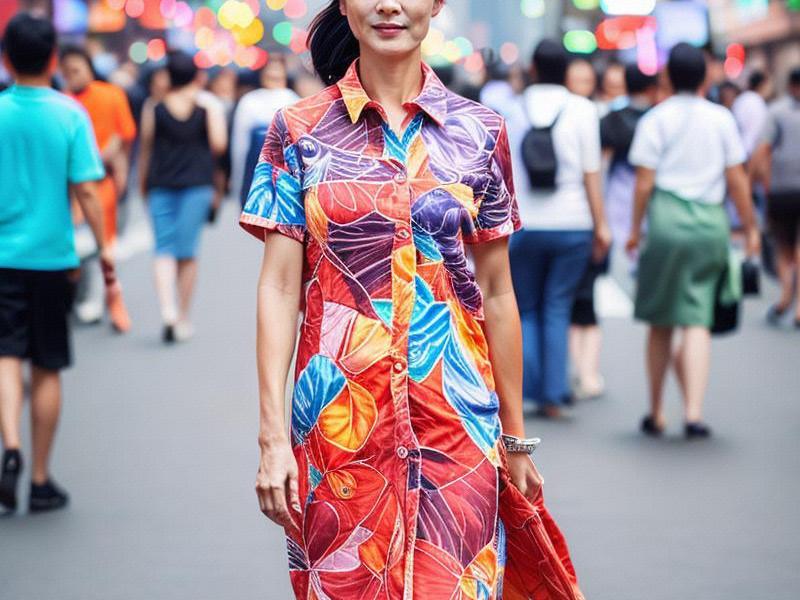 上海花千坊龙凤
上海花千坊龙凤 In the bustling metropolis of Shanghai, entertainment complexes have become a vibrant hub of leisure and culture, reflecting the city's dynamic evolution and its residents' ever-growing appetite for diverse experiences. These complexes, blending entertainment, dining, shopping, and cultural activities, are not just places to pass time but are also significant contributors to the city's economic and cultural landscape.The concept of entertainment complexes in Shanghai is not new. However, their recent transformation and expansion have been remarkable. They have evolved from simple movie theaters and arcades to multi-functional spaces that offer a wide array of activities, from immersive theater performances to high-end dining experiences. This shift is a testament to the changing preferences of Shanghai's residents, who now seek more integrated and enriching leisure experiences.One of the most notable examples of this evolution is the Xintiandi Entertainment Complex. Located in the heart of the city, Xintiandi has successfully combined traditional Shanghainese architecture with modern entertainment facilities. It offers a unique blend of cultural experiences, such as traditional Chinese opera and tea ceremonies, alongside contemporary attractions like state-of-the-art cinemas and trendy cafes. This fusion of old and new has made Xintiandi a must-visit destination for both locals and tourists.Another prime example is the Shanghai Disneyland Resort, which opened in 2016. This world-class theme park has set a new benchmark for entertainment complexes in China. It features six themed lands, each with its own unique attractions, restaurants, and shops. The resort has not only become a major tourist attraction but also a significant employer in the region, contributing to the local economy and creating thousands of jobs.The development of these entertainment complexes has been driven by several factors. Firstly, the rapid economic growth of Shanghai has provided the necessary financial resources for such large-scale projects. Secondly, the increasing disposable income of residents has led to a higher demand for quality leisure and entertainment options. Thirdly, the government's support for cultural and tourism industries has played a crucial role in the proliferation of these complexes.The impact of entertainment complexes on Shanghai's society and culture is profound. They serve as cultural hubs, promoting local traditions and art forms while also introducing international cultures and trends. For instance, the Shanghai Culture Square, which houses multiple theaters and performance venues, regularly hosts a variety of cultural events, from classical music concerts to avant-garde theater productions. These events not only enrich the cultural life of the city but also foster a sense of community and belonging among residents.Moreover, entertainment complexes have become significant economic drivers for Shanghai. They attract millions of visitors annually, generating substantial revenue from ticket sales, dining, and shopping. This influx of tourists also benefits other sectors of the economy, such as hospitality and transportation. Additionally, these complexes crteeanumerous job opportunities, from management and hospitality staff to performers and artists.However, the rapid development of entertainment complexes has also brought about challenges. One major concern is the potential loss of cultural authenticity. As these complexes strive to cater to a global audience, there is a risk of diluting local traditions and cultural heritage. To address this, many complexes have taken initiatives to preserve and promote local culture. For example, the Xintiandi Entertainment Complex incorporates traditional Shanghainese elements into its design and programming, ensuring that visitors can experience the city's rich cultural heritage.Another challenge is the environmental impact of these complexes. The construction and operation of large-scale entertainment facilities require significant resources and energy, contributing to pollution and waste. To mitigate this, many complexes have adopted sustainable practices, such as energy-efficient building designs and waste management systems. For instance, the Shanghai Disneyland Resort has implemented various green initiatives, including the use of renewable energy sources and the recycling of waste materials.The future of Shanghai's entertainment complexes looks promising, with ongoing developments and innovations. The city is expected to see the emergence of more integrated and technologically advanced complexes that offer unique and immersive experiences. For example, the upcoming Shanghai Media & Entertainment District aims to become a global hub for media and entertainment industries, featuring state-of-the-art facilities for film production, digital media, and gaming.Technological advancements are also set to revolutionize the entertainment experience. Virtual reality (VR) and augmented reality (AR) technologies are increasingly being integrated into entertainment complexes, providing visitors with immersive and interactive experiences. For instance, VR arcades and AR-themed attractions are becoming popular, offering a new level of engagement and excitement for visitors.In addition to technological advancements, there is a growing focus on inclusivity and accessibility in entertainment complexes. These complexes are striving to cater to diverse audiences, including families, seniors, and people with disabilities. For example, many complexes now offer family-friendly attractions and activities, as well as facilities and services that accommodate the needs of seniors and people with disabilities.The role of entertainment complexes in promoting cultural exchange and understanding is also becoming increasingly significant. As Shanghai continues to attract international visitors and businesses, these complexes serve as platforms for cultural exchange and interaction. They provide opportunities for visitors to experience the city's rich cultural heritage and to engage with local communities.In conclusion, Shanghai's entertainment complexes have undergone a remarkable transformation, evolving from simple leisure venues to dynamic hubs of culture, leisure, and economic activity. They have become integral to the city's cultural and economic landscape, offering diverse and enriching experiences for residents and visitors alike. While challenges such as cultural authenticity and environmental impact remain, ongoing developments and innovations are set to shape the future of these complexes, ensuring that they continue to thrive and contribute to the vibrant life of Shanghai.
上海贵族宝贝龙凤楼
